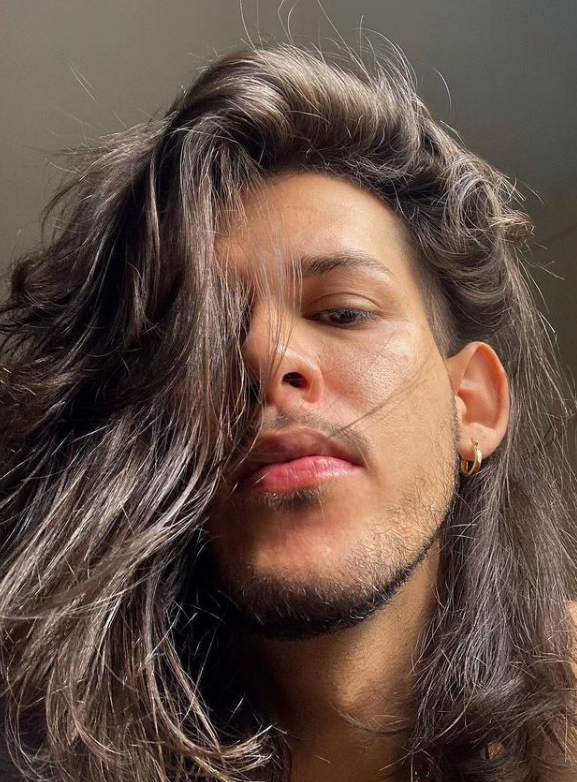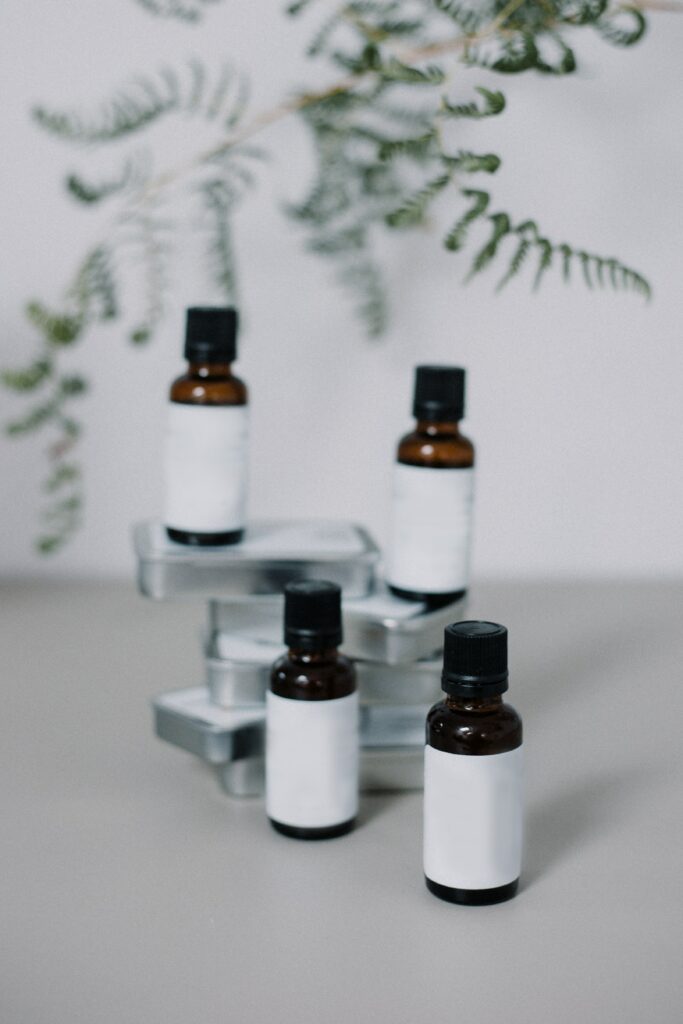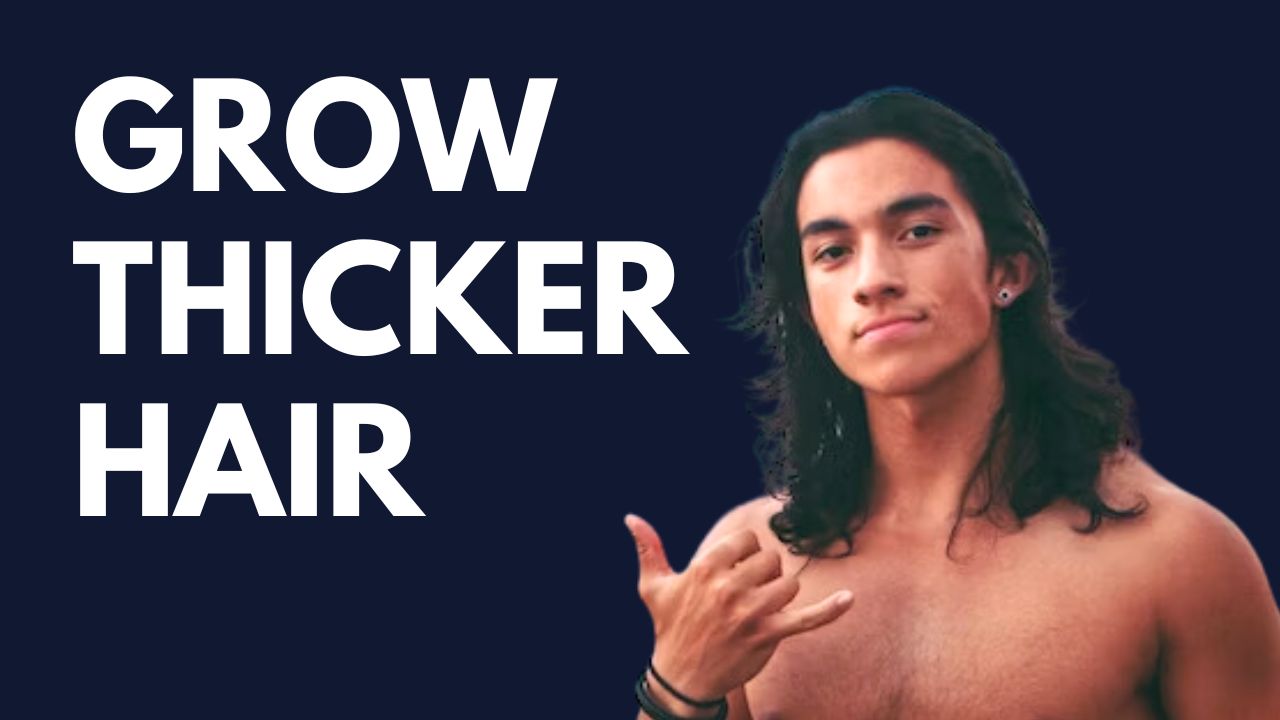Are you tired of thin, lifeless hair and looking for ways to boost thickness and volume? You’re not alone.
Many men struggle with hair that lacks fullness and body, but the good news is that there are proven techniques and tips to help you achieve thicker, healthier locks.

Understanding Hair Growth and Thickness
Hair thickness is largely determined by genetics and hormones, but there are other components at play as well. Let’s take a closer look.
The Hair Growth Cycle
Every hair on your head goes through a growth cycle that includes three phases: anagen, catagen, and telogen.
The anagen phase is the active growth phase when your hair is actively growing, while the catagen phase is the transitional phase when the hair stops growing and prepares to shed.
Finally, the telogen phase is the resting phase when hair falls out and makes way for new hair to grow. The length of these phases varies from person to person and can impact hair thickness.
During the anagen phase, the hair follicle is nourished by blood vessels, which provide the necessary nutrients for hair growth. The longer the anagen phase, the longer the hair can grow. This is why some people can grow their hair much longer than others.
On the other hand, during the catagen phase, the hair follicle shrinks and detaches from the blood vessels, which causes the hair to stop growing and eventually fall out. This phase typically lasts for two to three weeks.
Finally, during the telogen phase, the hair follicle is at rest, and the hair falls out. This phase lasts for about three months before the hair growth cycle starts all over again.
Factors Affecting Hair Thickness
In addition to genetic factors, other elements can create a thinner head of hair. Excessive heat styling, chemical treatments, and tight hairstyles can damage hair and cause it to fall out prematurely or weaken it at the root.
This is particularly true for people with curly or coily hair, which is more fragile than straight hair.
Be gentle with your hair and avoid harsh treatments that can strip your hair of its natural oils. This includes avoiding hot tools like flat irons and curling irons, which can cause heat damage, and chemical treatments like relaxers and hair dyes, which can weaken the hair shaft.
Stress and inadequate sleep can also disrupt the hair growth cycle or cause hair loss. When you’re stressed, your body produces cortisol, a hormone that can impact hair growth.
This can lead to hair loss or thinning. Similarly, not getting enough sleep can also disrupt the hair growth cycle and lead to hair loss.
Finally, poor nutrition and lacking essential vitamins and minerals can impact the thickness and health of your hair. Eating a balanced diet that includes protein, iron, and biotin can help promote healthy hair growth.
Taking supplements like biotin or omega-3 fatty acids can also help improve hair thickness and overall health.

Proper Nutrition for Thicker Hair
The saying “you are what you eat” could not be more accurate regarding hair health and thickness. To thicken your hair, you need to fill your diet with hair-healthy nutrients.
Thick, luscious hair is something that many people desire. However, achieving that perfect mane can be a challenge.
While there are many products on the market that claim to thicken hair, the most effective way to achieve thicker hair is through proper nutrition.
Essential Vitamins and Minerals
Vitamins and minerals that are essential for hair health and thickness include B vitamins, vitamin D, iron, zinc, and biotin. These nutrients are essential for the growth and maintenance of healthy hair.
B vitamins, such as Biotin, are particularly important for hair health. Biotin is a water-soluble vitamin that promotes healthy hair growth and prevents hair loss. Foods that are rich in biotin include eggs, almonds, and sweet potatoes.
Iron is also essential for hair health. Iron carries oxygen to the hair follicles, which is necessary for healthy hair growth. Foods rich in iron include red meat, spinach, and lentils.
Zinc is another important mineral for hair health. Zinc keeps the scalp healthy and prevents dandruff, which can lead to hair loss. Foods rich in zinc include oysters, beef, and pumpkin seeds.
Vitamin D is important for hair growth because it creates new hair follicles. Foods rich in vitamin D include fatty fish, egg yolks, and mushrooms.
Supplements can be an efficient way to ensure you’re getting enough of these nutrients, but foods rich in these nutrients can also be incorporated into your diet. Lean meats, dairy products, leafy greens, nuts, and seeds are excellent sources of these vitamins and minerals.
Foods to Incorporate into Your Diet
Rich sources of protein like eggs, fish, and lentils are a must for thicker hair. They contain essential amino acids that create the structure of hair and promote thickness.
Additionally, foods high in healthy fats, like avocados, olive oil, and nuts, can nourish the scalp and prevent hair from breaking or falling out.
Incorporating these foods into your diet can promote thicker, healthier hair. However, remember that hair growth is a slow process, and it may take several months to see results.
In addition to proper nutrition, you should also avoid harsh chemicals and heat styling tools, which can damage the hair and lead to breakage.

Scalp Care and Hair Health
Caring for your scalp is just as necessary as caring for hair strands. Here are the best methods to maintain a healthy scalp and promote hair thickness.
Massaging Your Scalp
A regular scalp massage can improve blood circulation, stimulate hair follicles, and increase hair thickness. Use your fingers to massage your scalp gently in circular motions, starting at the temples and working your way around to the back of your head.
Choosing the Right Hair Products
Select the appropriate hair products for your unique hair type and scalp. Products containing harsh chemicals can strip your hair and scalp of essential oils, leading to damage and hair fall. Opt for natural and gentle products that promote hair health and help improve thickness and texture.
Avoiding Damaging Hair Habits
Avoid habits that can damage your hair and prevent it from reaching its full-thickness potential. This includes over-brushing or using heat styling tools too frequently, using tight hair elastics or clips, and applying chemical treatments too often. Also, protect your hair by wearing a hat or scarf when exposed to the sun or wind.
Natural Remedies for Thicker Hair
If you prefer natural and low-cost options for promoting hair thickness, here are some remedies to consider. These natural remedies can help you achieve thicker hair without breaking the bank.
Essential Oils and Their Benefits
Essential oils like lavender, rosemary, and peppermint have been proven to stimulate hair growth and increase hair thickness. These oils have been used for centuries for their medicinal properties and are known to promote hair growth.
Lavender oil, for example, has antimicrobial properties that can improve scalp health, while rosemary oil can increase blood circulation in the scalp, which helps in hair growth. Peppermint oil has a cooling effect that can soothe an itchy scalp and promote hair growth.
To use essential oils for hair growth, mix a few drops of your preferred oil with a carrier oil like olive or coconut oil, then massage the mixture into your scalp for several minutes.
This will help to increase blood circulation in the scalp, which in turn promotes hair growth. Rinse it out after an hour or overnight. Repeat once per week for best results.

DIY Hair Masks and Treatments
You can create hair masks and treatments with ingredients found in your kitchen to help boost hair thickness.
Avocado and egg yolk are nourishing sources of protein and healthy fats that can improve hair texture and fullness when applied to the scalp and hair for 20-30 minutes. Avocado is rich in vitamin E, which helps to repair damaged hair follicles, while egg yolk is rich in protein, which is essential for hair growth.
Another great option is a green tea rinse that you can apply after washing your hair. The antioxidants in green tea can help prevent hair loss and promote natural growth. Green tea also contains polyphenols, which can strengthen hair and prevent breakage.
To make a green tea rinse, steep two bags in hot water for 10-15 minutes, then let it cool. After shampooing and conditioning your hair, pour the green tea rinse over your hair and scalp. Leave it on for 5-10 minutes, then rinse it with cool water.
Professional Treatments for Thicker Hair
If you’re looking for more advanced treatments to boost hair thickness, here are some options to consider.
Platelet-Rich Plasma (PRP) Therapy
PRP therapy involves injecting platelet-rich plasma into the scalp, which stimulates hair growth by increasing blood flow and reducing inflammation. This treatment has shown positive results in clinical trials and is safe for most people.
Hair Transplant Surgery
Hair transplant surgery is a more invasive option but can be effective for those with significant hair loss. It involves removing hair follicles from a donor site and transplanting them to the affected area to create thicker growth.
Laser Therapy for Hair Growth
Laser therapy uses low-level lasers to stimulate hair follicles and promote hair growth. This non-invasive treatment is painless and has helped many people improve their hair thickness and health.
In Conclusion
By incorporating these tips and techniques into your hair care routine, you can improve the thickness and health of your hair. From adopting a nutrient-rich diet to caring for your scalp and experimenting with natural and professional treatments, there are plenty of ways to achieve luscious, full hair.
Remember, consistency is key, so stick with your routine and give it time to show results.
Michael (Mike) Davis is an experienced writer and freelance stylist specializing in men's grooming, skincare, hairstyles, and fashion.
With over 5 years of industry experience, he has a deep understanding of men's skin types, hair textures, and fashion preferences. Mike's passion for staying up-to-date on the latest trends and techniques is evident in his writing, which has been featured in popular publications.
He takes pride in providing practical advice to his clients and readers.

